I'm using the Oracle.ManagedDataAccess to return data from my database, and I really need to page the results because there are lots of registers in this table.
So I'm using the second answer from this post to paging, and it really works when I do run on an Oracle Client.
The Final query looks like this:
select *
from (
select rownum as rn, a.*
from (
Select u.*
From users u
order by u.user_code
) a
)
where rownum <= :myReturnSize
and rn > (:myReturnPage-1) * :myReturnSize;
But when I call it from the .Net code below, it returns only the last register of the 100's I asked for.
OracleParameter[] parameters = new OracleParameter[]{
new OracleParameter("myReturnPage", page), //1
new OracleParameter("myReturnSize", size) //100
};
List<User> usersList = new List<User>();
using (OracleConnection conn = new OracleConnection(connString))
{
using (OracleCommand cmd = new OracleCommand(sbSelect.ToString(), conn))
{
conn.Open();
cmd.CommandType = CommandType.Text;
cmd.Parameters.AddRange(parameters);
using (OracleDataReader odr = cmd.ExecuteReader())
{
if (!odr.IsClosed && odr.HasRows)
{
while (odr.Read())
{
User userToReturn = new User();
FillUserEntity(userToReturn, odr);
usersList.Add(userToReturn);
}
}
}
}
}
return usersList.AsQueryable();
Even more bizarre is that when I run this query without pagination in the same method it returns me all registers, more than 723,000.
Any help would be appreciated.
Thanks a lot.


